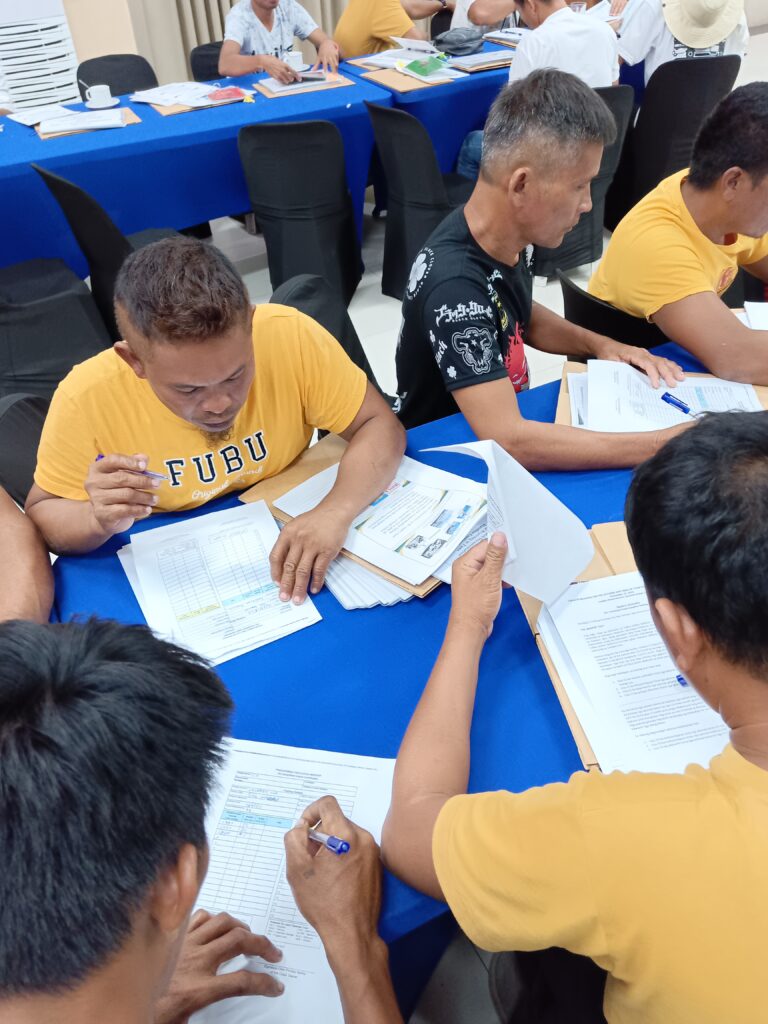DA-BFAR Senior Fishing Regulations Officer Peter Cadapan facilitated the workshop on proper Catch Documentation and Reporting in Handline Logsheet and highlighted the importance of proper catch documentation last November 29, 2023. He said that Fishing logbooks contribute to the sustainable management of fisheries. By documenting catch data and species information, the government and scientists can monitor fish populations, track changes over time, and assess the health of fish stocks.
The said workshop is part of the 4-day capacity building training for the 4th Batch of Commercial Tuna Handliners held at London Beach Resort and Hotel in General Santos City in support to the implementation of the Fishery Improvement Projects (FIP).
Mr. Cadapan presented 4 essential parts of the log sheet such as fishing vessel information, port origin, date and time of departure and arrival; Daily Time Record and Catch Position during fishing operations, and number of payao and pakura deployed; use of species identification and fishing activity codes; and estimation table of length and weight of tuna.



